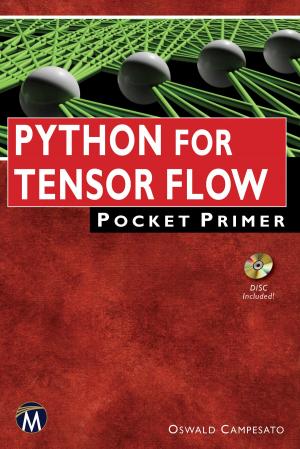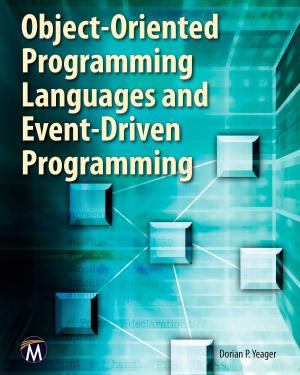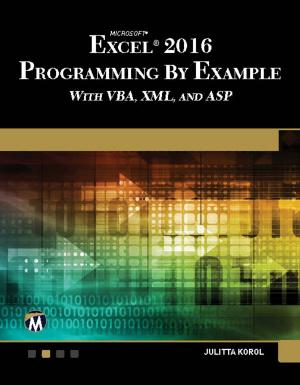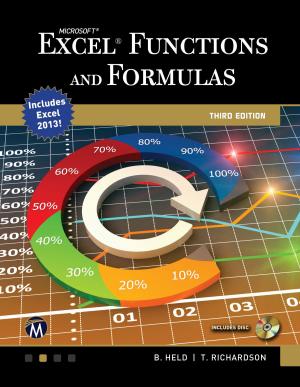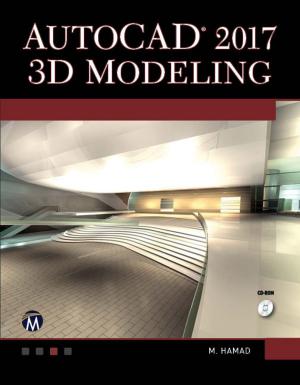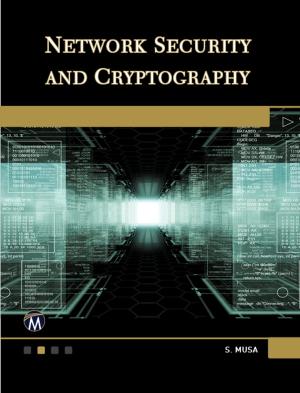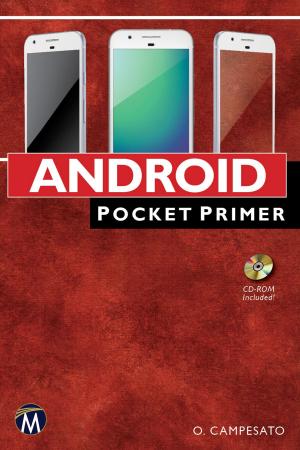Basic Electronics
Theory and Practice
Nonfiction, Science & Nature, Technology, Electronics, Circuits| Author: | Sean Westcott, Jean Riescher Westcott | ISBN: | 9781942270379 |
| Publisher: | Mercury Learning & Information | Publication: | February 15, 2015 |
| Imprint: | Mercury Learning & Information | Language: | English |
| Author: | Sean Westcott, Jean Riescher Westcott |
| ISBN: | 9781942270379 |
| Publisher: | Mercury Learning & Information |
| Publication: | February 15, 2015 |
| Imprint: | Mercury Learning & Information |
| Language: | English |
Designed for both the student and hobbyist, this book is an introduction to the theory and practice of electronics including advances in microcontrollers, sensors, and wireless communication. Each chapter contains a brief lab to demonstrate the topic covered then moves on to the final part which combines the knowledge mastered by building a programmable robot (Arduino and Netduino). The companion disc includes videos of the labs, soldering skills, and code samples for programming of the robot.
Covering both the theory and its practical application, this text leads the reader through the basic science concepts underlying electronics, building basic circuits, learning the roles of the components, the application of digital theory, and the possibilities for innovation by combining sensors, motors, and microcontrollers. The book includes appendices on mathematics for electronics, a timeline of electronics innovation, careers in electronics, and a glossary.
eBook Customers: Companion files are available for downloading with order number/proof of purchase by writing to the publisher at info@merclearning.com.
Features:
Includes a companion disc with eighteen video tutorials on currents, soldering, power supply, resistors, decoder circuits, and more
Leads the reader through an introductory understanding of electronics with simple labs and then progressing to the construction of a microcontroller-driven robot using open source software and hardware (Netduino and Arduino versions)
Presents theoretical concepts in a conversational tone, followed by hands-on labs to engage readers by presenting practical applications
Covering both the theory and its practical application, this text leads the reader through the basic science concepts underlying electronics, building basic circuits, learning the roles of the components, the application of digital theory, and the possibilities for innovation by combining sensors, motors, and microcontrollers. The book includes appendices on mathematics for electronics, a timeline of electronics innovation, careers in electronics, and a glossary.
eBook Customers: Companion files are available for downloading with order number/proof of purchase by writing to the publisher at info@merclearning.com.
Features:
Includes a companion disc with eighteen video tutorials on currents, soldering, power supply, resistors, decoder circuits, and more
Designed for both the student and hobbyist, this book is an introduction to the theory and practice of electronics including advances in microcontrollers, sensors, and wireless communication. Each chapter contains a brief lab to demonstrate the topic covered then moves on to the final part which combines the knowledge mastered by building a programmable robot (Arduino and Netduino). The companion disc includes videos of the labs, soldering skills, and code samples for programming of the robot.
Covering both the theory and its practical application, this text leads the reader through the basic science concepts underlying electronics, building basic circuits, learning the roles of the components, the application of digital theory, and the possibilities for innovation by combining sensors, motors, and microcontrollers. The book includes appendices on mathematics for electronics, a timeline of electronics innovation, careers in electronics, and a glossary.
eBook Customers: Companion files are available for downloading with order number/proof of purchase by writing to the publisher at info@merclearning.com.
Features:
Includes a companion disc with eighteen video tutorials on currents, soldering, power supply, resistors, decoder circuits, and more
Leads the reader through an introductory understanding of electronics with simple labs and then progressing to the construction of a microcontroller-driven robot using open source software and hardware (Netduino and Arduino versions)
Presents theoretical concepts in a conversational tone, followed by hands-on labs to engage readers by presenting practical applications
Covering both the theory and its practical application, this text leads the reader through the basic science concepts underlying electronics, building basic circuits, learning the roles of the components, the application of digital theory, and the possibilities for innovation by combining sensors, motors, and microcontrollers. The book includes appendices on mathematics for electronics, a timeline of electronics innovation, careers in electronics, and a glossary.
eBook Customers: Companion files are available for downloading with order number/proof of purchase by writing to the publisher at info@merclearning.com.
Features:
Includes a companion disc with eighteen video tutorials on currents, soldering, power supply, resistors, decoder circuits, and more

